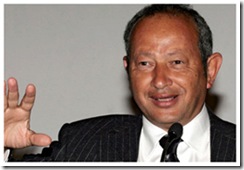In a move which could be seen to safeguard Telecom Egypt’s revenues which dropped during 2009, Egypt’s regulator has outlawed Voice over Internet Protocol (VoIP) calls made through mobile Internet connections.
"The ban is on Skype on mobile internet, not on fixed, and this is due to the fact it is against the law since it bypasses the legal gateway," stated Amr Badawy, the executive president of the National Telecommunication Regulatory Authority (NTRA).
Therefore, only Telecom Egypt is prohibited to allow Skype and other such VoIP services, and not providers of mobile Internet connections: Mobinil, Etisalat Egypt and Vodafone Egypt.
"We monitor what is happening on international voice calling and it has had an adverse effect on it," Badawy added.
On March 14, Telecom Egypt posted annual revenues of EGP 9.96 billion (US$1.8 billion), a decline of less than two per cent from EGP 10.12 billion a year earlier. Despite lower revenues, net profit increased 9.7 per cent from EGP 2.79 billion in 2008 to EGP 3.06 billion in 2009.
The ban follows the United Arab Emirates’ regulator which announced on March 15 that international companies such as Skype would not receive VoIP licences to operate in the UAE. Only local firms Etisalat, Du, Thuraya and YahSat are licenced to provided VoIP services.





